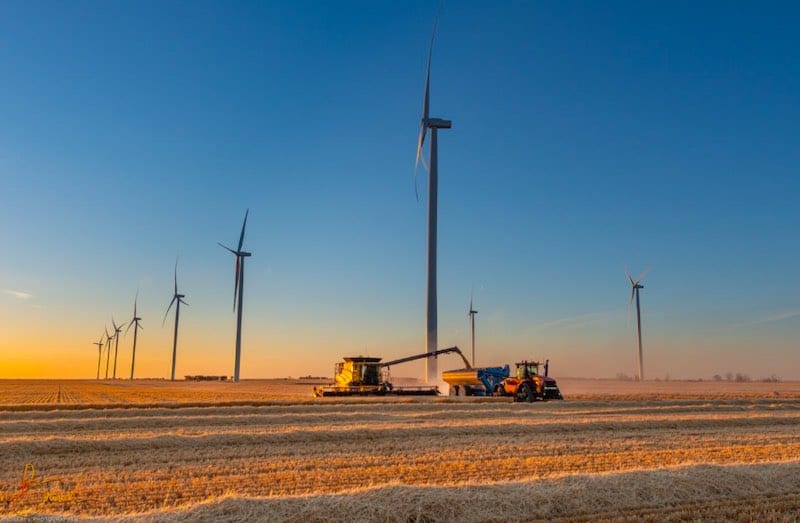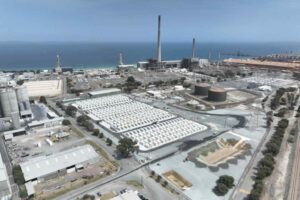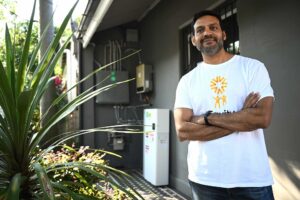Telstra’s move to get rid of carbon credits and dump claims of “carbon neutrality” could be part of a trend away from a market rife with low quality offsets, says the man who blew the whistle on Australia’s carbon offset market.
Last week, Telstra said it will stop using carbon credits and instead directly invest in decarbonisation projects, a move ANU professor Andrew Macintosh says is the “sensible” strategy.
Macintosh, the former head of the government’s Emissions Reduction Assurance Committee whose work highlighting flaws in Australia’s carbon credit markets led to a major review of the sector, says companies participating in the country’s voluntary carbon markets are worried.
“The feedback we’re getting from voluntary players is that they see the market dominated by low integrity credits,” he told Renew Economy.
“A lot of them don’t have the in-house expertise to evaluate credit integrity, they’re fearful of being accused of greenwashing when they use credits. I would have thought there is a bit of a trend that way [towards exiting the market]. The question now is how big a trend that becomes.”
The numbers might be bearing him out. The Clean Energy Regulator’s March quarter report showed that in the first three months of 2024, 1 million of the 1.2 million Australian Carbon Credit UNits (ACCUs) cancelled were for compliance purposes.
Getting out of offsets and directly investing as Telstra is doing is likely the “sensible strategy,” Macintosh says.
“It means emissions reductions won’t look as good on paper but they will be legitimate. That is a much better outcome for the climate, and their stakeholders,” he says.
“I think the more sensible approach for voluntary players is asking how much capital we’re willing to invest in striving to reduce emissions, and take that and put it in the place that gives you the most legitimate reductions in emissions.”
Blowing the whistle over carbon offsets
Most companies have “net zero” targets which rely on the use of offsets, even for interim targets. Andrew Forrest’s Fortescue Metals is one of the few with a “real zero” target – in its case to stop burning fossil fuels in its Pilbara iron ore operations by 2030.
Macintosh’s work in 2022 found serious integrity problems with all of the major carbon credit markets in Australia.
The work, published over four papers, pointed to human-induced regeneration that hadn’t actually regrown any forests and in some cases, had seen forest cover shrink, and landfill sites that were granted credits for energy systems using captured methane which would have been built anyway.
Macintosh went further to say that some of the methods under the ERF – established to purchase offsets on behalf of Australian taxpayers – amounted to an “environmental and taxpayer fraud.”
The ensuing Chubb review into ACCUs rejected the idea that carbon credit markets were fundamentally broken, and recommended closing down the controversial “avoided deforestation” methodology which saw land holders paid for promising to not cut down trees that they may never have had any intention to cut down anyway, and tightening up on the Human-Induced Regeneration and Landfill Gas methods.
Same work, done better
Telstra’s shift away from carbon credit markets is accompanied by a hike in scope one and two emissions reductions, from 50 per cent by 2030 to 70 per cent, and the end of Climate Active certification and the use of the terms “carbon neutral” or “carbon offset”.
The company has already reduced scope 1 and 2 emissions by 30 per cent and scope 3, from suppliers, customers and other sources, by 28 per cent. It is set to achieve its goal of contracting renewables equivalent to all of its energy consumption by 2025.
The move doesn’t mean Telstra is moving away from action on climate change or that our products have a more harmful climate impact, said chief sustainability officer Justine Rowe in a company blog post.
“Our customers can be certain that we’re doing more within Australia to reduce the direct impact our operations have on the environment. And we’re continuing to support decarbonising Australia’s energy grid for a greener future.”
But it will leave the Climate Active program without its biggest participant and comes in the wake of a Senate enquiry in April accusing it of “state sponsored greenwashing”. In the same week the Australian Competition and Consumer Commission (ACCC) refused to endorse the program, saying its rules needed work.
Public side-eyeing offsets
With the ACCC going on the attack over potential greenwashing claims, questions still being raised over ACCUs after the Chubb review, and the almost annual exposes of carbon schemes around the world, public perception is becoming an issue.
Almost half of Australians say carbon offsets are greenwash and 62 per cent think they help polluters look like they are reducing emissions even when they aren’t, found an Australia Institute poll in early 2023.
Consumer sentiment was one of the factors pushing Telstra out of the market.
“Our research indicates that our customers and stakeholders would prefer to see us making this move, focusing more on reducing emissions directly in our operation,” a spokesperson for the company told Renew Economy.
The company has already fielded criticism over the years for its use of Indian credits. In 2020 it claimed to be officially carbon neutral but only thanks to offsets bought overseas and particularly from India because of a lack of opportunities in Australia.
Telstra was criticised for putting efforts into decarbonisation overseas rather than at home, and for doing so with credits vastly cheaper than those available in Australia.
Kicking credits the next step
Unlike many companies, Telstra has years of practice and expertise behind it in directly investing in decarbonisation, and kicking carbon credits out is likely the logical next step.
It has deals with a range of major energy projects, is testing hydrogen-backed generators for off-grid sites, and has its own carbon farm in regional New South Wales.
Telstra’s was the first power purchase agreement (PPA) for the 1 gigawatt Ark Energy wind project; a deal last year with the 120 megawatt (MW) Munna Creek solar farm got it to renewables worth 80 per cent of its total energy consumption; and a PPA in December with a new Bundaberg solar farm got it all the way there.
Telstra already has PPAs with the Emerald Solar Park, MacIntyre Wind Farm, the Murra Warra Wind Farm in Victoria (pictured) and Stage 3 of the Crookwell Wind Farm in New South Wales.
But cancelling the carbon credit option entirely will still come at a cost.
“You’d have thought if they maintain the same target but try to achieve it all internally it’s almost certainly going to be more expensive, certainly in the short term, and even over the full life cycle,” Macintosh says, given the low prices for local credits.
The current ACCU price is around $32, a price that Macintosh says is artificially low and doesn’t reflect real abatement.
“Fake stuff tends to be cheap.”








